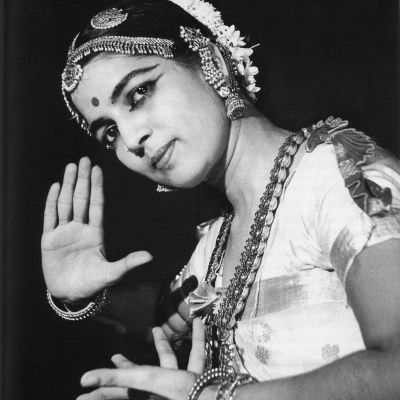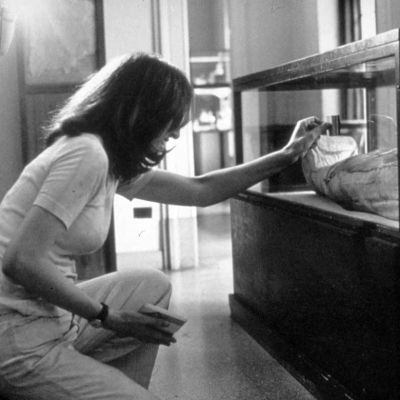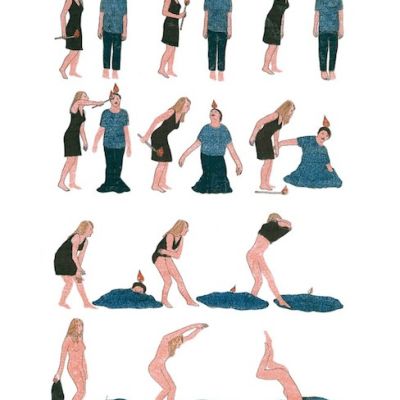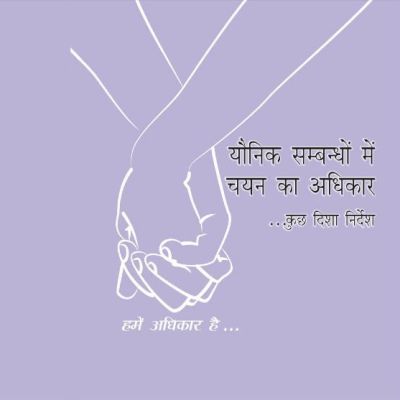Categories
She was 17 when she was rescued from a dance bar. Now she’s 18 and she wants to go back. As an adult. And dance again. That’s what Alisha wrote in a letter to the Child Welfare Committee.
Alisha’s letter may be one of a kind. It doesn’t matter. It may even be a scam of sorts, in that she was pushed to write it. Doesn’t matter. What’s interesting is the jumble that it throws up, if you look at her choices through eyes that are not hers.
Several hundreds of women have presumably enrolled at India’s other IITs in the past 20 years, although none of these schools keep records of the gender of their students. Where did all these women go ‒ and why aren’t they leaders in Indian industry today?
The feminist classic sex work vs prostitution debate was played out in this context in a way that was different from what happens in cis feminist spaces. In the eyes of this narrator, cis feminists who have never engaged in sex work have a lot to learn from travestis and trans women. First of all: the respect.
If a woman’s clothing is tight or revealing (in other words, sexy), it sends a message — an intended one of wanting to be attractive, but also a possibly unintended one of availability. If her clothes are not sexy, that too sends a message, lent meaning by the knowledge that they could have been. There are thousands of cosmetic products from which women can choose and myriad ways of applying them. Yet no makeup at all is anything but unmarked. Some men see it as a hostile refusal to please them.
Adeanna Cooke:
International model, featured in Playboy,
Established hacker and amateur computer programmer.
A short movie with a twist ending, Belle de Jour (meaning ‘Beauty of the Day’, and this one is not the 1967 film by Luis Buñuel) begins by showing a stereotypical middle-class Indian woman who goes to work after taking care of her household.
Written in one sitting in Philadelphia, Ukeles’ manifesto was a manifestation of the rage she felt when she was pregnant with her first child and a male mentor proclaimed, “Well, Mierle, I guess you know you can’t be an artist now.”
One morning at the programme, I found he was ignoring me. I was also busy with my assigned work so I was not able to follow up with him until the break. During the break, he came and sat next to me, came closer and suddenly kissed me on the cheek.
काम करने वाली जगहों पर महिलाओं का यौन उत्पीड़न एक कड़वी सच्चाई है। यह महिलाओं के अस्तित्व, उनकी सेहत और श्रम को चोट पहुंचाता है; साथ ही उन्हें रोज़गार छोड़ने तक पर मजबूर कर देता है। महिला श्रमिकों को यह मौका ही नहीं मिलता कि वो पुरुषों की तरह बराबरी से अपना योगदान दे सकें। इस गैर-बराबरी की वजह से संस्थाओं, फैक्ट्री, और कम्पनिओं और इन जैसी तमाम काम करने की जगहों को, समाज और देश की अर्थव्यवस्था को काफ़ी नुकसान हो रहा है।
This photo feature gives us a glimpse into the lives of women from around the world at their diverse places of work: “Teachers, farmers, businesswomen, politicians, mothers, law enforcers – women and girls contribute every day in many visible and invisible ways.”
इन प्लेनस्पिक के इस काम व यौनिकता के मुद्दे को सुनने के बाद पहला विचार मन में आया कि मैं कार्यस्थल पर होने वाली यौन हिंसा के बारे में लिखूंगी। फिर ऑफिस में रोमांटिक रिश्तों व लव स्टोरी के बारे में याद आया जो हम सब अपने काम के आसपास देखते या सुनते आये हैं और यह बॉलीवुड फिल्मों का भी पसंदीदा मुद्दा रहा है। मुझे ये बड़ा ही रोमांचक लगा, और जब मैंने लिखना शुरू किया तो एक सवाल मेरे दिमाग में आया – क्या कार्यस्थल पर इस मुद्दे से सम्बंधित कोई नीति है?
Is there a relationship at all that cannot be defined by love? And, if we were to begin talking of relationships other than romantic love, how would we speak of sexuality? Upon this deliberation, we realised that our Love and Sexuality issue seemed to revolve around romantic love and sex. The departure this issue on Relationships and Sexuality makes is to try and incorporate forms of relationships that might not be about romantic love but have their own kind of romance, and facets of sexuality that might not be about sex per se but will place its interest in alternate relationships to it.
आली द्वारा प्रकाशित आली द्वारा 6 राज्यों में (जिसमें उ.प्र., म.प्र., हरियाणा, महाराष्ट्र, पश्चिम बंगाल व केरल शामिल हैं) इस विषय…
They were stranded together on an island, the only two English-speaking writers at a conference (this somehow happens in Berkeley). They have wild and instant intimacy of the kind where you tell each other everything. It’s the kind of friendship in which you want to be together all the time, the world is not enough, the day is not long enough to give you all the time you want with your friend.
My sexual desires may not be what certain people called ‘normal’ and I could not share this with my so called friends as I thought they would consider me weird. Surprisingly a woman in my hometown introduced me to the world of Kink. She was a regular housewife and with her for the first time I got to know what I actually needed and wanted and it went on for a good amount of time till I moved out of that place for many reasons.















